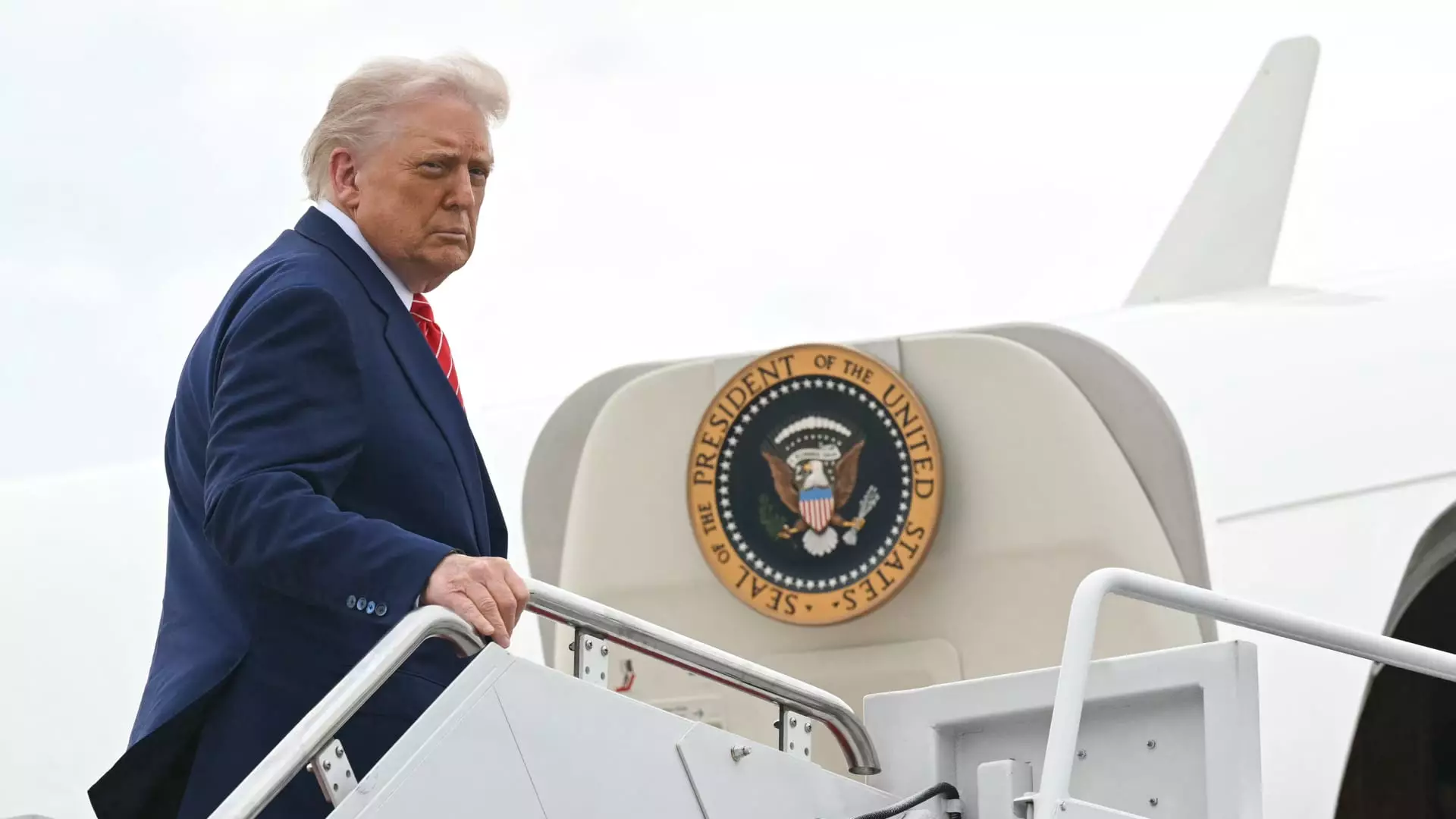The recent turmoil surrounding President Donald Trump’s tariffs has thrown the economic landscape into disarray, leaving citizens and businesses alike grappling with uncertainty. Initially touted as a revolutionary move to protect American interests, these tariffs are now ensnared in a web of legal challenges that could reshape the future of international trade and have far-reaching consequences. Commerce Secretary Howard Lutnick’s unwavering assertion that tariffs are here to stay comes across as both defiant and desperate. The ongoing legal saga denotes not just a struggle over tariffs but a battle for the very principles surrounding economic policy in America.
Hassett, the National Economic Council Director, radiates confidence, claiming that the judiciary will support Trump’s erroneous application of the International Emergency Economic Powers Act—an act originally designed to respond to actual national emergencies, not trade disputes. Such faith in the judiciary from a political appointee seems misplaced, and raises questions about the moral and legal grounds on which these tariffs stand. Are we willing to gamble our country’s economic future on the fragile assumption that a conservative-majority Supreme Court will automatically favor the executive branch? This is not just a question of legality; it prompts an evaluation of the potential consequences on America’s global standing.
The Price of Protectionism
The notion of protecting American manufacturing and jobs resonates with many, yet it is imperative to recognize that the tools employed—tariffs—carry their own set of risks. By imposing these duties, Trump has not only sparked retaliation from other nations, but he has destabilized longstanding international alliances that the U.S. once relied upon to promote trade and mutual economic benefit. The precariousness of this situation can hardly be overstated; America’s strength has traditionally been its ability to attract international business through collaboration, not separation.
Lutnick’s assertion that a ruling against tariffs would “allow other Countries to hold our Nation hostage” epitomizes a paranoid narrative that misconstrues economic interdependence as vulnerability. While it is essential to protect American interests, the argument framed through the lens of victimhood misses a fundamental economic principle: trade is a two-way street. When one side chooses to retreat behind artificial barriers, it inadvertently damages its own strategic interests. The so-called emergency situation Trump claims exists as justification for these tariffs is not an authentic crisis but rather a political illusion meant to galvanize his base.
The Fallout: A Recipe for Economic Ruin
The threats of “economic ruination” that Trump casually deploys on social media emphasize a rhetoric designed to galvanize fear rather than a sound economic strategy. The reality, however, is that this fixation on tariffs can lead to worsening trade deficits and escalating commodity prices for American consumers. Those who would be most affected by these policies are not the foreign governments demonized in Trump’s narrative, but the hardworking individuals in the U.S. who will face higher prices and fewer employment opportunities as businesses adjust to the new economic environment.
As Trump’s administration dances around potential alternatives should the tariffs face judicial setbacks, there looms an unsettling question: What will these “alternative routes” entail? Without clear guidelines or a coherent strategy presented to the public, the administration’s vague allusions to economic remedies result in more skepticism than optimism. The tendency to obfuscate strategies under the guise of keeping options open raises concerns about transparency and accountability in governance.
The Political Game of Economic Risk
Underneath this rhetoric lies an inherent political game. Maintaining tariffs serves not simply as a means of economic protection, but also as fuel for the political machine that feeds on anti-establishment sentiments. By framing legal challenges as attacks on American sovereignty, Trump seeks to energize his base and overshadow legitimate critiques of his policies. This political maneuver stands starkly against the best interests of the economy and the populace, who ultimately foot the bill for these reckless actions.
As we continue to witness this unfolding saga, it becomes increasingly clear that the endeavor to salvage what’s left of an already fractured economic policy is aimed more at gaining political clout than at achieving genuine economic benefit. In the cacophony of voices defending the tariffs, it is time we acknowledge that blind loyalty to a contentious economic doctrine may inadvertently lead us down a path of further division and crisis, dismissing the collaborative spirit that has historically bolstered our nation’s economy.

